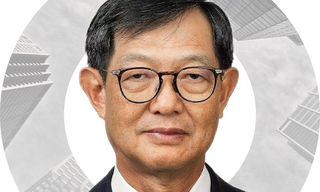UBS wants to calculate its share capital in dollars. It probably won't be enough to attract big money in the USA, finews.asia finds.
UBS, Switzerland's largest bank, is now stating its share capital and dividend in US dollars. This is more than just a footnote to the 2022 annual financial statements, which were published on Tuesday.
As the UBS balance sheet shows, Swiss law permitted the change at the beginning of the year, and an opportunity it did not want to pass up. UBS intends to have the transition to the US currency approved at the upcoming annual general meeting.
The Chairman's Bet
If shareholders agree on the switch, they will find themselves with slightly less value, at least nominally. According to the bank's calculations, the value per share will drop from 10 centimes to 10 cents, with the dollar currently trading at 0.92 francs. On Tuesday, UBS said the switch was a logical step since it has been reporting its results in dollars for some time.
There is likely more to the transition than just aligning a reporting convention with a currency. Chairman Colm Kelleher is keen to see UBS shares find more buyers among large US institutional and fund firms. That would help raise the valuation of the securities to the level of Wall Street banks. Morgan Stanley trades 1.7 times its book value, while UBS currently weighs in at 1.2 times its intrinsic value on the stock exchange.
Share Price Softens
As of early Tuesday, that was not going according to plan. UBS could not escape the broad market movement and temporarily lost 2 percent in value during the day.
This could be an omen. As finews.com has calculated, even a massive entry of US giants like Vanguard or State Street would probably not lift the share price of the bank significantly since leverage is too low. The mere conversion of the share capital into dollars won't turn UBS into an American bank that can rely on the «home bias» of US investors.
Show Me the Money
It is much more likely Americans will be lured in with hard cash. Here, management is going out on a limb with growth initiatives in the Americas and Asia, a 10 percent dividend increase, and a share buyback of over $5 billion this year. That sounds good in principle, but first, the money has to be earned, as finews.com has already pointed out.
It will take more than an open wallet to whet US investor interest. A big announcement is needed.
CEO Ralph Hamers announced a growth initiative at the WEF in Davos at the beginning of the month and confirmed it today. The world's largest private bank wants to grow primarily in America and Asia where it will continue to recruit staff.
Low Bar for Ambitions
Hamers has failed to turn on the corporate targets from 2020, which finews.asia judged were conservative at the time. Three years later, merely confirming the key figures for 2023 and raising the annual savings target by $100 million to $1.1 billion carries hardly any weight.
This approach may be cautious, a characteristic that has served UBS well since the government bailed it out. But it's not the kind of drumbeat that would be heard across the Atlantic.


























